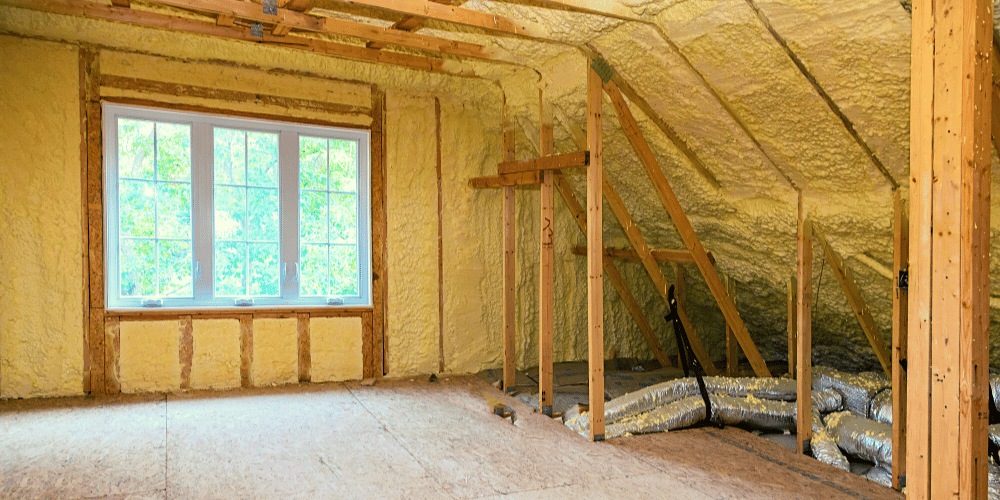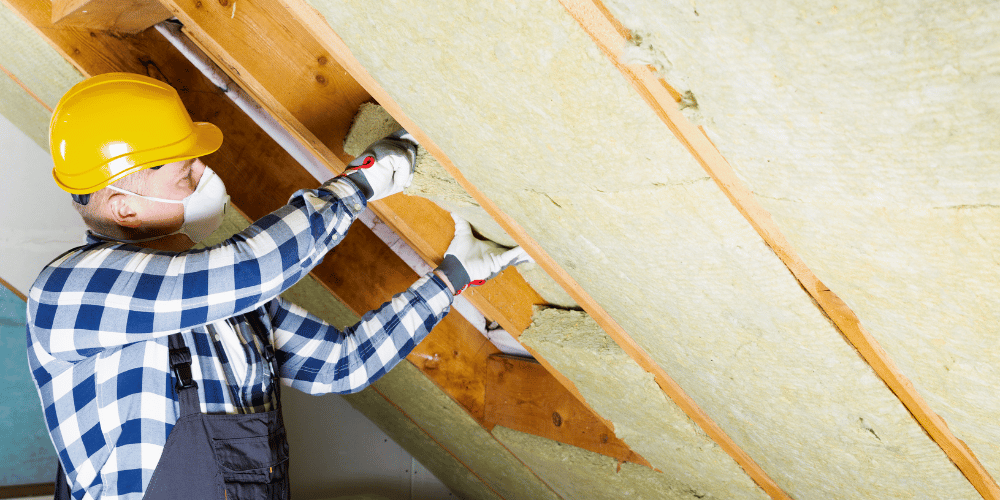When it comes to making your home more energy efficient, insulation is one of the most important elements to consider. Whether you’re building a new home or replacing your home’s insulation, choosing the right insulation is essential for achieving optimal energy savings and comfort.
With so many different types of insulation on the market, selecting the best product for your home can seem like a daunting task. But with a little knowledge about the different types of insulation and their individual benefits, you can easily find the right insulation for your home.
So, let’s take a closer look at the different types of insulation and what makes them the best choice for your home.
What is insulation?
Insulation is a material that traps air and slows down the transfer of heat between two surfaces. In buildings, insulation is used to control indoor conditions by reducing the amount of heat flowing through walls, floors, and ceilings.
Insulation is also used to minimize sound transmission between the inside and outside of buildings. Insulation materials include fibrous materials, liquids, and gases. The first two types are referred to as “solid insulation” while the third type is called “fluid insulation.”
There are many types of insulation available on the market today, each with its own set of benefits and drawbacks. When selecting the right insulation for your home, it’s important to take all of these factors into consideration.
Different types of insulation
Fibrous insulation materials include fiberglass, cellulose, and synthetic fiber. Cellulose mixes shredded newspaper with a binder to create a product that is similar in appearance to fiberglass but at a lower cost.
Some other fibrous materials that are sometimes used as insulation include hemp, cotton, and sisal. Liquid insulation materials include substances such as mineral oil and polyurethane.
These are often used in conjunction with fibrous materials to create a more energy-efficient wall. Gaseous insulation materials include things like argon, krypton, and carbon dioxide. These are often used to fill gaps in above-grade walls, attics, and crawl spaces to prevent air infiltration and excessive moisture.
Benefits of insulation
Energy savings: The most obvious benefit of insulation is energy savings. By increasing the amount of insulation in your home, you can reduce the amount of energy needed to keep your home at an optimal temperature. Whether you’re heating or cooling your home, insulation can significantly reduce your energy bills and reduce your carbon footprint.
Improved indoor air quality: Another great benefit of insulation is the reduction in indoor air quality issues. Poor air quality can be caused by many different factors, such as dust, dander, and mold. Insulation can help reduce the amount of dust and other particulates in the air by trapping them inside the insulation material.
Improved indoor sound quality: Insulation can also make a significant difference in indoor sound quality. Soundproofing is often achieved by placing insulation inside the walls of a building. By adding more insulation to your walls, you can reduce the amount of sound that travels between the inside and outside of your home.
A safer home: By adding more insulation to your home’s walls, you can also increase the safety of your home. This is especially important in areas subject to extreme weather, such as hurricanes, tornadoes, and floods.

Factors to consider when choosing insulation
- Insulation type: When selecting the right insulation type, it’s important to consider the type of construction in your home and local climate. This will help you select the right type of insulation for your home. For example, if your home has a slab-on-grade foundation, you would want to avoid using fiberglass insulation, which could cause moisture buildup in the subfloor.
- Surface temperature: You should also consider the surface temperatures of each insulation type. The surface temperature of a material is the temperature at which it will emit as much heat as it absorbs.
- R-value: The R-value of an insulation type is a measure of how well it resists heat flow. Higher R-values mean more effective insulation.
- Thickness: The thickness of the insulation is another important factor to consider when choosing insulation. The thicker the insulation, the more effective it will be.
Tips on insulation installation
- Make sure to leave pathways for airflow: While you want to make sure that your insulation is thick enough to be effective, you also don’t want to overdo it. You’ll want to leave pathways for airflow to prevent moisture buildup.
- Avoid installing insulation near electrical wires: Electrical wires should be installed at least two inches away from the wall studs. In order to avoid dangerous situations, you should avoid installing insulation within 18 inches of the electrical wires.
- Make sure your subfloor is dry: If you’re installing insulation in an above-grade wall, such as in an attic or a crawl space, make sure that the subfloor is as dry as possible. This will help prevent moisture buildup in your home.
Cost of insulation
The cost of insulation varies depending on the type of insulation and the amount required. However, on average, the cost of installing insulation in a typical home is around $2,000. This cost may vary depending on the type of insulation, the size of your home, and the contractor you choose.
Insulation can save you a significant amount of money over time, so the initial investment is well worth it. You can save up to $150 per year in energy costs for every dollar you spend on insulation.
Energy savings with insulation
In addition to the initial cost of insulation, you can also expect to see savings on your energy bills over time. The amount of energy you’ll save with insulation will vary depending on the type of insulation you install and the size of your home.
For example, if you install fiberglass insulation in the walls of a 2,000-square-foot house, you can expect to see a yearly savings of up to $150 on your energy bills.
On average, homeowners can save a total of around 30% on their utility bills by installing the appropriate amount of insulation.
Best insulation for different climates
The types of insulation you should use will depend largely on the climate where you live. For example, if you live in an area with high humidity, you may want to opt for air-tight insulation like cellulose.
On the other hand, dry areas may benefit from mineral wool insulation. However, no matter what type of insulation you choose, it’s important to maintain your home by inspecting it regularly for damage and maintaining proper indoor air quality.
These steps will help you maintain the energy efficiency of your home and help you lower your energy bills.

Professional insulation services
When you bought your home, you hired a realtor to help you through the process. You can also hire a contractor to help with the insulation in your home. This may be a great option if you don’t have the skills or time to DIY. Hiring a contractor to install insulation in your home will come at a cost, but you can expect the investment to be well worth it.
By installing more insulation in your home, you can save a significant amount of money on energy bills and improve the indoor air quality in your home. In addition, you can also reduce your carbon footprint by installing insulation.
Insulation is an essential part of any home improvement project. With so many options to choose from, it can be difficult to decide which insulation is best for your home. But by considering the benefits, costs, and type of insulation, you can easily find the right product for your needs.
Conclusion
Insulation is one of the most important components to consider when choosing the right insulation for your home. Whether you’re buying your first home or renovating an existing one, choosing the right insulation is essential for achieving optimal energy savings and comfort.
With so many different types of insulation on the market, selecting the best product for your home can seem like a daunting task. But with a little knowledge about the different types of insulation and their individual benefits, you can easily find the right insulation for your home.




